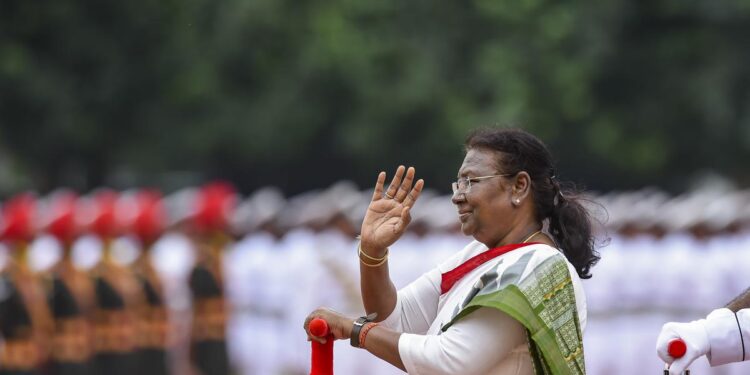Agencies-Gaza post
Droupadi Murmu’s election as India’s 15th president could give more awareness to tribals’ rights
The election of Droupadi Murmu as India’s 15th President is wealthy in symbolism.
In the 75th year of the country’s Freedom, Ms. Murmu becomes the second woman to settle the Rashtrapati Bhavan, and the first member of tribal society to do so.
Her membership in the Santhal tribe is in focus, she has grown through the levels in the Bharatiya Janata Party (BJP), and has led a sense of her own during her stint as Governor of Jharkhand.
Her election to the tallest office in the country comes 101 years after two tribespeople were selected for legislative bodies in colonial India.
Founding formations of the Republic were acutely cognizant of the disadvantageous situation of the tribespeople and made special requirements such as the Fifth and Sixth Schedules of the Constitution.
Jaipal Singh Munda, sportsman, and tribal leader was a well-known member of the Constituent Assembly who forcefully expressed the fears and longings of tribespeople.
In 2000, two States, Jharkhand and Chhattisgarh, were created to provide more attentive attention to the concentrated tribal population in these areas.
The Scheduled Tribes and Other Traditional Forest Dwellers (Recognition of Forest Rights) Act, was enacted in 2006. Ms. Murmu’s election is a milestone in the trip of tribal empowerment, though she is by no funds restricted to her identity, it is a moment of fulfillment for India.
For the BJP and Prime Minister Narendra Modi, this is a point of political triumph over the Opposition.
Paving the path for a tribal woman to succeed as a Dalit in the highest office, Mr. Modi has offered yet his capacity to constantly script refreshing politics by gauging the political aspirations of marginalized residents and enlisting them for Hindutva politics. Ms. Murmu’s elevation has elated tribespeople across the country, and this could convert into significant electoral gains for the BJP in the coming days.
Her candidacy split the Opposition, as many members of the Shiv Sena and JMM helped her.
Tribespeople has high anticipations of Ms. Murmu’s rise to the top, but that could be recognized only if the Modi government backs up its symbolism with substance.
This is the right moment to pay attention to the circumstances that many tribal activists have been boosting a systematic erosion of protections accorded to tribals, harassment and suppression by the police, and general intolerance of the state towards tribal autonomy.
Ms. Murmu personally may have determined leeway in championing any political cause, but she has certainly become an impulse for all deprived sections of society women, tribals, and the poor in general.
To make her election more significant, state policy too must turn towards justice and the rights of all. Ms. Murmu’s election should not be used as a suitable reason for inaction in opposing the wider disempowerment of tribespeople.

















